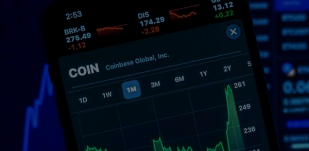SWIFT: What is it and how does it work?
Peter O'Flanagan
Chief Executive Officer
We make wire transfers all the time without giving it a second thought thanks to their innate convenience. Put simply, a wire transfer facilitates money transfers electronically across a network of banks or transfer agencies around the world from one person or institution to another.
This is something we all take for granted in the internet-enabled world. Just a few taps of a screen or clicks of a mouse and our funds are automatically sent to the desired location quickly and securely - as if by magic. But things haven’t always been so seamless.
Imagine having to describe every transaction in sentences that are then interpreted and executed by the receiver. Back in the early 1970s that was the norm because telex was the only means of message confirmation for international funds transfer. This clunky electronic process for transferring funds - used primarily for overseas wire transactions - was restricted by low speed, security issues and a free message format that made human error commonplace.
Aware that this inefficient system was clogging the payments process - and concerned a single institution might develop their own monopolising system - six major international banks formed a cooperative society to operate a global network for transferring financial messages in a secure and timely manner.
And so, in 1973, the SWIFT (Society for Worldwide Interbank Financial Telecommunications) system was born - a messaging network for financial institutions to securely transmit information and instructions through a standardised system of codes that name banks and describe transactions. Other secure systems that are used to send wire payment instructions include Fedwire and CHAPS.
SWIFT: the modern payments landscape

This global member-owned cooperative has evolved into the world’s leading provider of secure financial messaging services. SWIFT is the global financial artery that facilitates the smooth and rapid transfer of money across borders - making secure international trade possible for its members. This ubiquitous facilitator of inter-currency wire transfers connects almost every country in the world to a centralised payment network, enabling banks and institutions to process SWIFT transfers.
Today, SWIFT - which is considered one of the most convenient and secure ways to send money internationally - is used by more than 11,000 financial institutions worldwide to communicate information on financial transactions in a secure and standardised way across over 200 countries.
SWIFT’s ability to evolve in an ever-changing payments landscape, without undermining the trust that underpins it, allows it to reflect the complexity and diversity of the financial ecosystem five decades on from its inception.
SWIFT’s vision is compelling: “Goods and services move more quickly and across greater distances than ever before, so value needs to move further and faster too. Our vision is for a world in which payments are not only trusted but instant. We innovate tirelessly, test exhaustively, then implement fast. In a connected and challenging era, our approach has never been more relevant. There’s no other organisation like us anywhere in the world. Without us, the world would be a very different place. We’re trusted every instant.”
SWIFT has become a crucial element in the global financial infrastructure, but it is not a financial institution itself. SWIFT has the power to facilitate secure, efficient communication between member institutions - but does not hold or transfer assets. Therefore, it’s governed by the National Bank of Belgium, in partnership with major central banks around the world - including the US Federal Reserve and the Bank of England.
SWIFT's global dominance has made it a significant consideration in geopolitics. According to SWIFT, it has no influence over sanctions and any decision to impose them rests with governments. In 2012, Iran was banned from SWIFT as part of sanctions over its nuclear programme - causing the nation to lose almost half of its oil export revenues and 30% of foreign trade.
SWIFT has been making headlines in 2022 after the EU, US, UK and allies agreed to exclude a number of Russian banks from SWIFT following Russia’s condemned invasion of Ukraine. The sanction aims to squeeze the country's banking network and its access to funds via SWIFT.
A joint statement from the allies said the move would "ensure that these banks are disconnected from the international financial system and harm their ability to operate globally".
SWIFT: the benefits
SWIFT’s seamless message format has provided the foundation for huge scalability. Today, it provides frictionless, reliable, safe, secure and fast international payments for a range of financial service providers - and their customers:
- Banks
- Brokerage institutes and trading houses
- Securities dealers
- Asset management companies
- Clearing houses
- Depositories
- Exchanges
- Corporate business houses
- Treasury market participants and service providers
- Foreign exchange and money brokers
SWIFT’s internationally standardised messaging allows these institutions to communicate transparently and relay the details of any transaction securely.
The benefits of using SWIFT can be divided into three broad categories:
- Transparency: SWIFT clearly details vital information - including: transaction totals, the route a transfer takes between banks, all charges and the nature of the payment. This vital information allows all involved to track the transaction and understand the costs.
- Traceability: SWIFT’s ability to track the transaction allows it to provide clear and recognised proof of payment.
- Consistency: The consistency of the message structure ensures payment information is easy to decipher, regardless of the country or language.
SWIFT: the challenges
SWIFT might be one of the most convenient and secure ways to send money internationally, but it’s not the cheapest because it often carries high fees. The fee charged to wire money varies depending on where you're sending it to, and what bank you use to send it.
The international payment process involves banks and wire processing services for each country – and with more financial services comes more fees. Up to £40 can be charged for wiring money to an overseas bank account and up to £7.50 for receiving money from an overseas account.
Since Brexit, some European banks have begun charging a receival fee on transfers they deem to have originated from outside of the EU. So, with Britain now firmly outside the provisions of the bloc, fees of between 0.5% to 1% of the receiving amount are sometimes levied on payments – which can soon add up.
Kevin MacCarthy, Clear's Head of Operations & Customer Experience said:
“SWIFT has been hitting the headlines recently, due to the removal of Russia from its networks, but for our business, and of course all our clients, it is the global standard for payments. Since its inception it has set the benchmark for security, reliability and scalability in the world of payments.”
Currency risk exposure
International payments using the SWIFT network will expose the sender to currency market risk. Businesses and individuals must, therefore, understand this risk before making payments and attempting to mitigate it.
Currencies are traded around the clock - 24 hours a day. Therefore, the value of the pound against other currencies is constantly changing - not just daily but by the minute. Why do they fluctuate in value? Currencies strengthen and weaken each day because banks and investors purchase huge volumes in response to political and economic news: positive news about a country typically causes the value of the currency to rise (“strengthen”), while bad news causes it to fall (“weaken”).
We also know when they might move because we often know the timing of political events that might influence them, and the economic calendar shows us when influential economic data will be released. However, there will also be news that happens without warning - anything from a US president tweeting late at night to a fall in the price of bauxite.
What we cannot predict – and no one can – is whether they will move up or down or by how much. Even slight fluctuations can make a big difference to the price of your international payments. In some instances, the impact of the political and economic variables that influence exchange rates can be severe, as has been proved in recent times. For example, back in March 2020, when the true extent of the Covid-19 pandemic became clear, the pound sunk to its lowest level against the dollar since 1985 and its lowest level against the euro since the depth of the financial crisis 11 years earlier.
Before the pandemic struck, this exposure to currency market risk had the potential to drive up the cost of sending money overseas if left unaccounted for. Since then, however, the importance of mitigating the impact of exchange rate fluctuations on the cost of your international payments has been magnified. This has brought the need to seek the services of a currency specialist into sharp focus for businesses and individuals.
Clear Currency
Clear Currency specialises in helping businesses and individuals that are exposed to currency market risk save money when making international payments via the SWIFT network.
Transferring large sums of money into another currency and transferring them overseas can be daunting and confusing. Aware of this, we use our knowledge and experience to cut through the jargon and provide you with a friendly and personal service.
We recognise that it’s impossible to accurately predict how exchange rates will perform; therefore, it’s prudent to plan for all eventualities. With this in mind, we will assign you a dedicated account manager. In addition to helping you benefit from quick, easy, reliable and secure transfers from our intuitive payments platform, they can help you mitigate the impact of currency risk on your international payments.
Your account manager will work in partnership with you throughout the international payment process. For example, a business that regularly transfers money overseas will be faced with varying costs each month due to the dynamic nature of the currency market. Therefore, they will want to secure the most favourable exchange rate.
Because fluctuating exchange rates make it hard to judge how much you’ll pay at any one time, your account manager can help you execute a forward contract to secure the cost of your payments. This allows you to lock in an exchange rate for a date in the future, securing the price of your international payments when the time comes to execute them.
This dedicated currency specialist can also help you to plan and establish a proactive hedging strategy. There’s no “one size fits all” approach to protecting your bottom line from the threat of currency risk. Therefore, a bespoke hedging strategy that aligns with your requirements, commercial context, and risk appetite will allow your business to execute effective solutions that sync with its aims.
Related Articles
How to Mitigate Foreign Exchange Risk
Currency risk can have a significant effect on the efficiency and profitability of any international business. Each exchange rate movement affects how much you receive from sales and what you pay to suppliers.
Read more
Moving to Dubai from the UK: Checklist
You’re ready for a new life overseas and have decided you’re moving to Dubai. Now it’s time to consider the various costs involved, from your visa and accommodation, to health insurance, shipping your belongings and bringing your beloved pets along too.
Read more
Currency Outlook Quarter 1 2023
Clear Currency looks back at the performance of the US dollar, euro and sterling in Q4 2022, and assesses what might be in store for Q1 2023.
Read more



